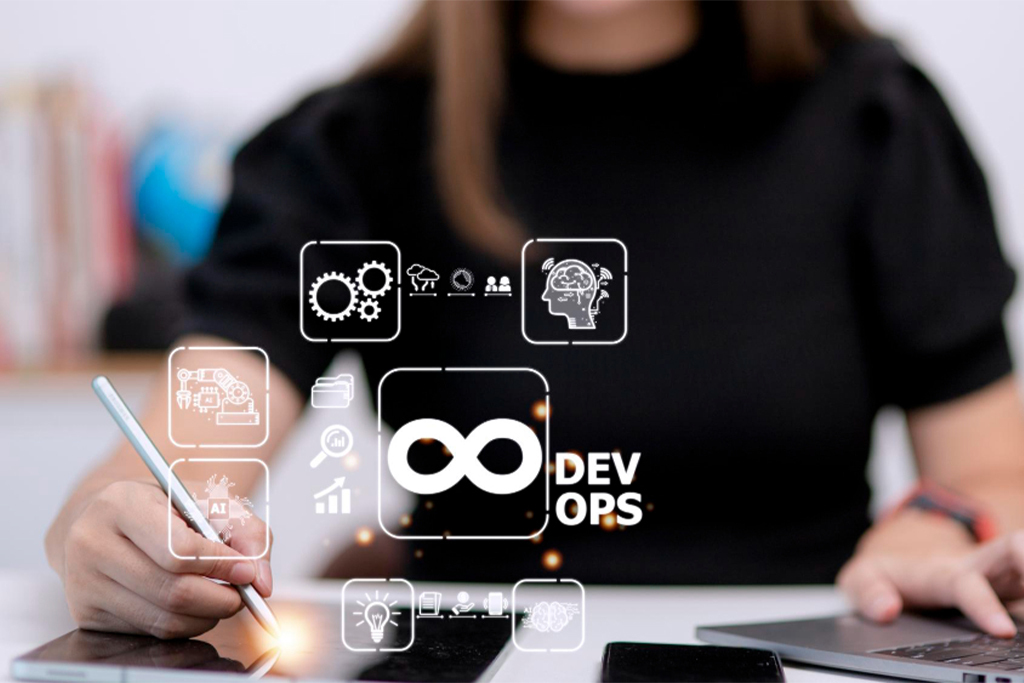
DevOps Software is a transformative philosophy that is redefining the Software Development lifecycle. In this comprehensive guide, we unravel the intricacies of DevOps methodologies, shedding light on its core principles and essential components. Through a blend of theoretical insights and practical wisdom, readers will discover proven strategies for implementing DevOps practices seamlessly within their organizations. From fostering a culture of collaboration and automation to embracing continuous integration and delivery, this article equips aspiring DevOps practitioners and seasoned professionals alike with the tools they need to thrive in today’s fast-paced digital landscape.
DevOps Software Practices: Monitoring and Logging
Using monitoring and logging is crucial to track performance and catch issues early. By implementing robust monitoring solutions, organizations can gain real-time insights into application and infrastructure metrics, enabling quick identification and resolution of problems. Regularly review and optimize your processes to keep up with the latest Devops Best Practices. Evoquesys recommends starting with a clear strategy: define your goals and identify the tools and processes that align with your objectives. Automate repetitive tasks to reduce errors and save time.
Understanding DevOps Software
DevOps, short for Development and Operations, is a set of practices, principles, and cultural philosophies aimed at improving collaboration, communication, and integration between software development teams (Dev) and IT operations teams (Ops). Successful implementation of DevOps requires adopting a mindset of continuous improvement, automation, and cross-functional collaboration across the entire software delivery lifecycle.
Best Practices for Successful DevOps Software Implementation
- Cultural Transformation: DevOps begins with a cultural shift towards collaboration, transparency, and shared responsibility. Organizations must foster a culture of trust, respect, and accountability across development, operations, and other relevant teams. This involves breaking down silos, promoting open communication, and encouraging a mindset of continuous learning and improvement.
- Automation: Key areas for automation include code deployment, infrastructure provisioning, testing, monitoring, and configuration management. By automating these processes, Evoquesys can provide greater consistency and more reliable software delivery.
- Continuous Integration (CI): CI is a practice where developers frequently integrate their code changes into a shared repository, followed by automated builds and tests. CI helps identify integration issues early in the development cycle, enabling teams to detect and address defects quickly. By automating the CI process, organizations can maintain a high level of code quality, improve collaboration, and accelerate the feedback loop.
- Continuous Delivery (CD): CD extends the principles of CI by automating the deployment process, allowing organizations to deliver software updates to production environments rapidly, reliably, and with minimal manual intervention. CD pipelines automate the entire software delivery process, including code integration, testing, deployment, and monitoring. By implementing CD, organizations can reduce deployment errors, increase release frequency, and improve overall agility.
- Infrastructure as Code (IaC): IaC is a practice where infrastructure configuration is managed programmatically using code and version control systems. By treating infrastructure as code, organizations can automate the provisioning, configuration, and management of infrastructure resources, such as servers, networks, and storage. IaC enables teams to achieve consistency, repeatability, and scalability in their infrastructure deployments while also facilitating collaboration between development and operations teams.
- Monitoring and Feedback Loops: DevOps emphasizes the importance of continuous monitoring and feedback loops to assess the performance, availability, and reliability of software systems. Evoquesys should implement monitoring solutions that provide real-time insights into application and infrastructure metrics, logs, and events. By monitoring key performance indicators and user feedback, teams can identify areas for improvement, prioritize efforts, and optimize system performance over time.
- Security and Compliance: Security and compliance are integral components of DevOps, requiring organizations to embed security practices and controls into every stage of the software delivery lifecycle. DevSecOps integration extends DevOps principles to include security considerations from the outset, integrating security testing, vulnerability scanning, and compliance checks into automated pipelines. By addressing security and compliance requirements early and continuously, organizations can reduce risks, protect sensitive data, and maintain regulatory compliance.
- Continuous Learning and Improvement: DevOps is a journey of continuous learning and improvement, requiring organizations to embrace experimentation, feedback, and adaptation. Teams should regularly reflect on their processes, identify areas for improvement, and implement iterative changes to drive incremental improvements. By fostering a culture of continuous improvement, organizations can adapt to evolving market demands, technology trends, and customer feedback effectively.
Beyond DevOps: Custom Web Development and Mobile App Development
At Evoquesys, we understand that DevOps is not just about tools and practices; it’s about delivering high-quality software solutions that meet the needs of our clients. Whether it’s Custom Web Development, Mobile App Development, Mobile App Development, or creating powerful applications for iOS & Android, our team is equipped to handle every aspect of your software development journey. Our expertise in integrating Devops Best Practices ensures that we can deliver scalable, secure, and efficient software solutions tailored to your unique requirements.
Ready to Enhance Your Software Delivery?
Successful DevOps implementation requires a holistic approach that encompasses cultural, technical, and organizational aspects. By adopting DevOps Best Practices, organizations can achieve greater collaboration, agility, and innovation, ultimately delivering value to customers more efficiently and effectively. Monitor performance to quickly identify and resolve issues. Are you ready to enhance your software delivery? Contact us today or call us at 9861366622 to discover how our DevOps solutions can.



